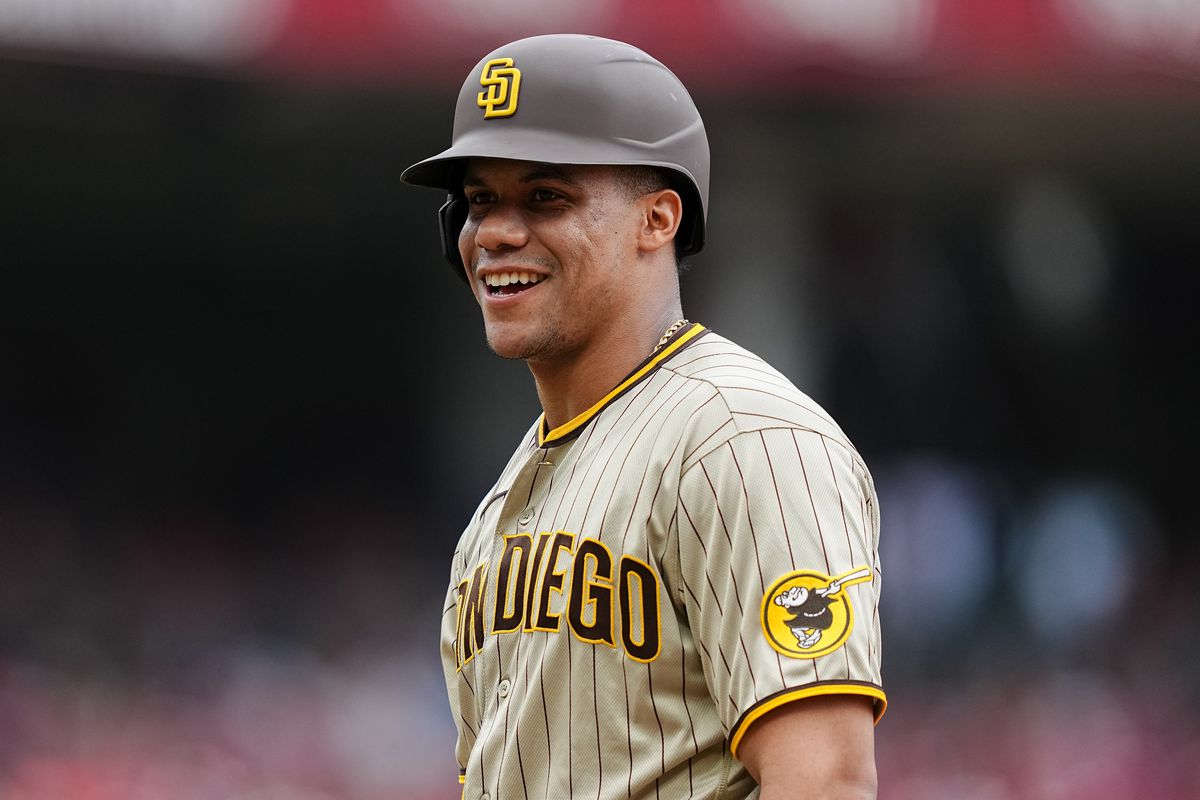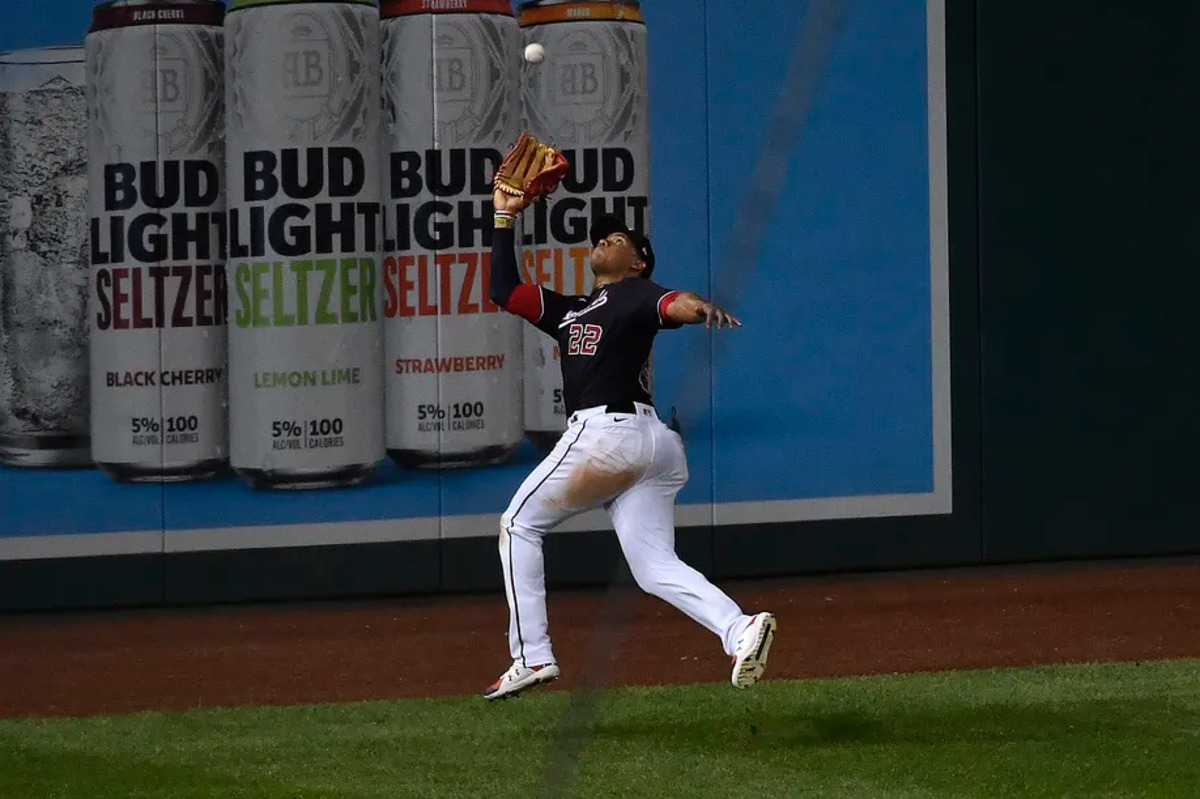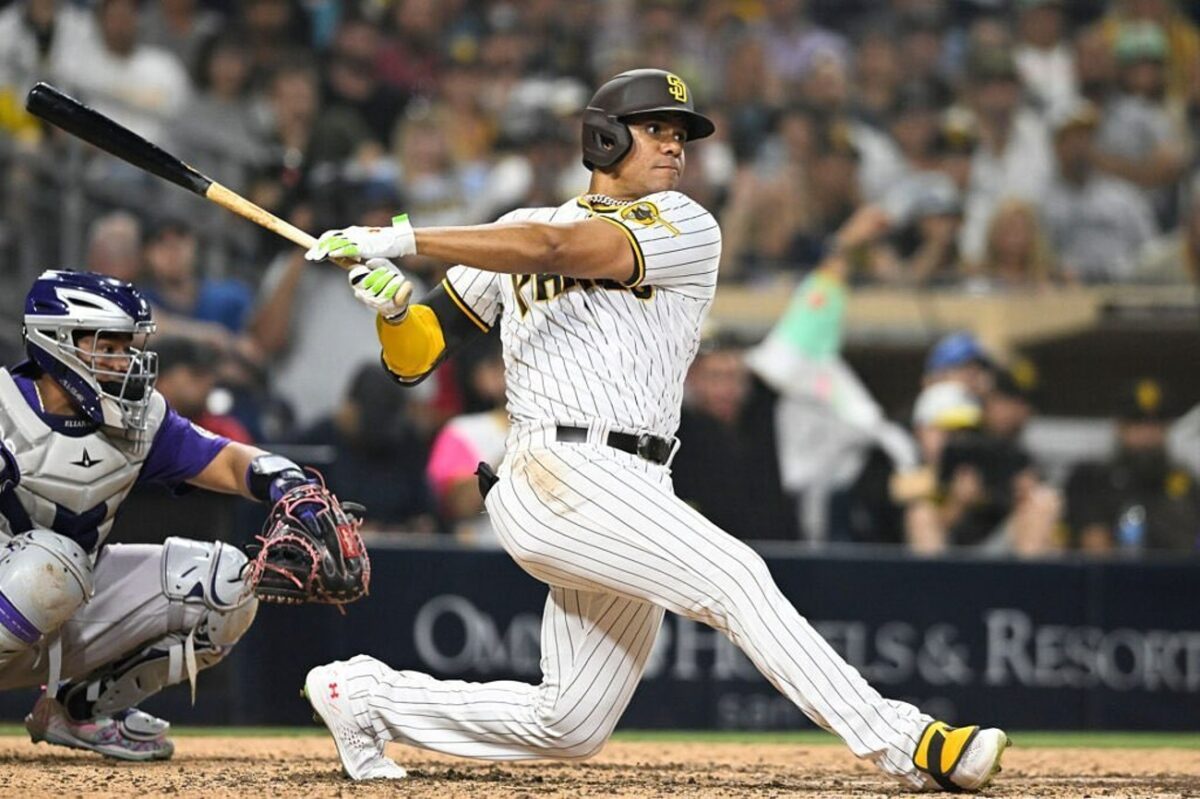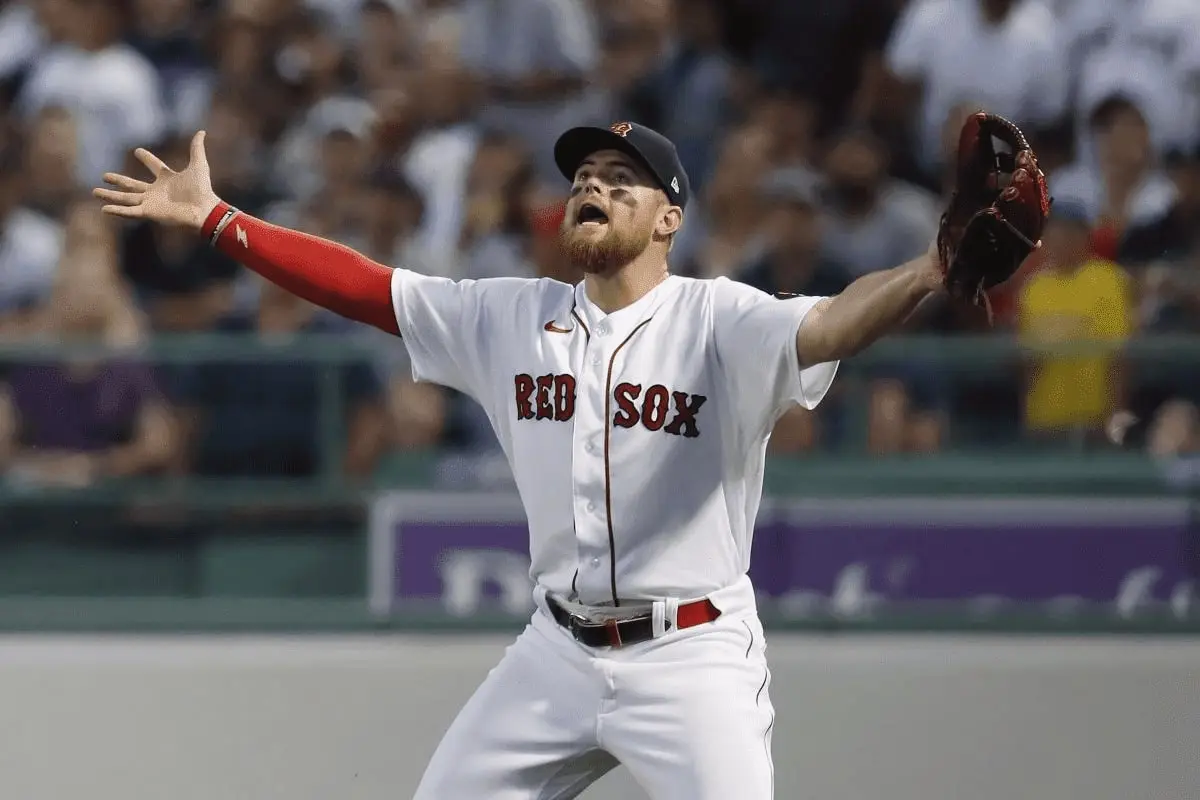Why Yankees don’t want to pass up Juan Soto even if it’s one-year rental


Sara Molnick
More Stories By Sara Molnick
- Mother’s Day: How Anthony Volpe’s mom molded him into a Yankee phenom
- Yankees, Grisham agree on one-year extension for $5M plus incentives
- Yankees keen to sign Buehler, who won 2024 championship with Dodgers
- Yankees trim payroll, part ways with Jon Berti to save $3.8 million
- Insider reveals Christian Walker and three more stars as Yankees’ offseason targets
Table of Contents
The Yankees are ready to trade for Juan Soto even if he has only a year left on his San Diego contract. His exceptional talent surpasses the hype, and his final season of arbitration at around $33 million is a mere fraction of his true value.
On Tuesday, Jon Heyman presented an argument that garnered criticism from many in the Yankees community. The counter-argument from fans seems to be that giving up whatever it takes to acquire Juan Soto is a worthwhile endeavor.
As Juan Soto approaches free agency, likely commanding hundreds of millions, the real puzzle for the Yankees and other suitors is determining his worth for a single season, encompassing 162 games and potentially a postseason.
The real value of Juan Soto for the Yankees
While Juan Soto’s left-handed prowess and defensive versatility make him an ideal fit for the Yankees, the contractual intricacies add complexity to the evaluation. However, it’s crucial to consider that while the Yankees and other teams have the option to explore the open market and make immediate purchases, obtaining Juan Soto would only be a short-term arrangement and a costly one at that.

Even if the Yankees put starting pitcher Clarke Schmidt in the Juan Soto trade package, the New York team has the edge. It’s worth noting that Clarke Schmidt may not be on par with Juan Soto in terms of baseball prowess, but the question arises: would the potential four-year production from Schmidt on the mound be more valuable than having just a single season with the Padres slugger?
As per Baseball Trade Values, the equivalence of one year of Juan Soto is roughly equivalent to the following four years of Clarke Schmidt. Surprising as it may sound, this doesn’t imply that Schmidt surpasses Juan Soto in skill, but rather, the slugger’s value is influenced by his 2024 price tag and the uncertainty of his future. Despite his exceptional abilities, the website suggests that he holds notably less value than the subsequent two years of Michael King, who might also be part of a multi-player exchange.
While there may be room for debate regarding the specific valuations, the allure of possessing several years of a skilled and economically controlled player often outweighs the appeal of just one exceptional year, especially in the unpredictable realm of baseball. Recognizing this, teams frequently acquire superstars with the intention of exploiting early negotiation opportunities to secure the player for an extended period.
A case in point is the Mets, who relinquished intriguing young infielders Andres Gimenez and Amed Rosario to acquire Francisco Lindor (along with Carlos Carrasco), only for Steve Cohen to subsequently commit $341 million to the superstar shortstop. Similarly, the Dodgers and the Cardinals pursued a similar strategy with Mookie Betts and Paul Goldschmidt, respectively. In these instances, the teams not only traded for a star player but also secured an exclusive negotiating window—an advantageous element likely absent in the added value of acquiring Soto. Notably, Juan Soto, who declined a $440 million contract extension from the Nationals, is under the representation of super-agent Scott Boras, known for guiding his clients to the open market for optimal contract negotiations.

In all likelihood, acquiring Juan Soto would entail just one guaranteed year for teams, and the cost would be losing several valuable pieces in the process. According to Heyman’s report, prying the slugger from San Diego might require parting with two top-100 prospects or similar young players. The question arises: would it be worth pulling the trigger on a deal involving Schmidt, top pitching prospect Chase Hampton, and Randy Vasquez, essentially sending three promising arms to the Padres?
Baseball Trade Values’ model suggests that such a package would be deemed a significant overpayment. However, the current market dynamics indicate that such an overpayment might be the only way to emerge victorious in the bidding war.
Are the Yankees right?
Given the scarcity of impactful position players in the free-agent pool, teams not securing players like Cody Bellinger and Shohei Ohtani could encounter significant challenges in filling crucial positions. The appeal of Soto extends beyond his potential Hall of Fame trajectory, boasting a lifetime .421 on-base percentage, impressive power, and being just 25 years old. Teams are not only drawn to Juan Soto for his merits but also because there are limited alternatives that offer comparable offensive contributions. It’s conceivable that the Yankees, or any interested team, might need to consider adding a third or even a fourth prospect to the deal, as failure to do so could potentially result in losing out to other suitors in the bidding process.
The less apparent aspect of acquiring Juan Soto is the tangible financial cost. Will the approximately $33 million he is poised to earn in his final arbitration year impact the broader scope of the Yankees’ offseason plans? Hal Steinbrenner, having expressed his belief that the team, which Spotrac estimated to finish with a payroll of around $280 million last year, should not exceed $300 million to secure a championship.
Depending on the subsequent moves made by the Yankees, Juan Soto’s salary could potentially influence their pursuits of players like Bellinger and Japanese right-hander Yoshinobu Yamamoto. While a bit over $30 million for Juan Soto might be deemed a bargain, it is essential to factor this amount into the overall calculation of his true value.

Moreover, it’s plausible that Juan Soto could hold greater value for the Yankees compared to many of their competitors, and not solely due to the dimensions of the Stadium’s right-field porch. Acquiring Soto, a hitter often likened to Ted Williams, boasting a .946 OPS since entering MLB (ranking fourth-best in the span), and having demonstrated postseason success by winning a World Series with the Nationals, could be the impactful move that Brian Cashman needs to make. Acknowledging the criticisms of an organization he deems “pretty f–king good,” immediately enhancing the 2024 Yankees could potentially alleviate some of the pressure on the Yankees GM.
However, what if the 2024 Yankees fall short of their lofty standards, defined by a failure to win the World Series (a scenario considered likely)? In such a case, losing Juan Soto, and potentially witnessing the prospects sent to San Diego flourish, could intensify the pressure on Cashman.
Acquiring Juan Soto might put Brian Cashman in a challenging position, especially if the Yankees were unable to retain him beyond the upcoming season.
Perhaps Juan Soto is precisely the hitter the Yankees need to bolster their lineup alongside Aaron Judge, securing another championship for The Bronx. On the other hand, it could be viewed as a desperate move by the current regime, gambling heavily on bets that ultimately don’t pay off.
In a blockbuster deal of this magnitude, the range of potential outcomes is as extensive as the talent possessed by Juan Soto.
What do you think? Leave your comment below.
- Categories: aaron judge, Clarke Schmidt, Juan Soto, shohei ohtani
- Tags: aaron judge, Clarke Schmidt, Juan Soto, shohei ohtani


 Follow Us
Follow Us









